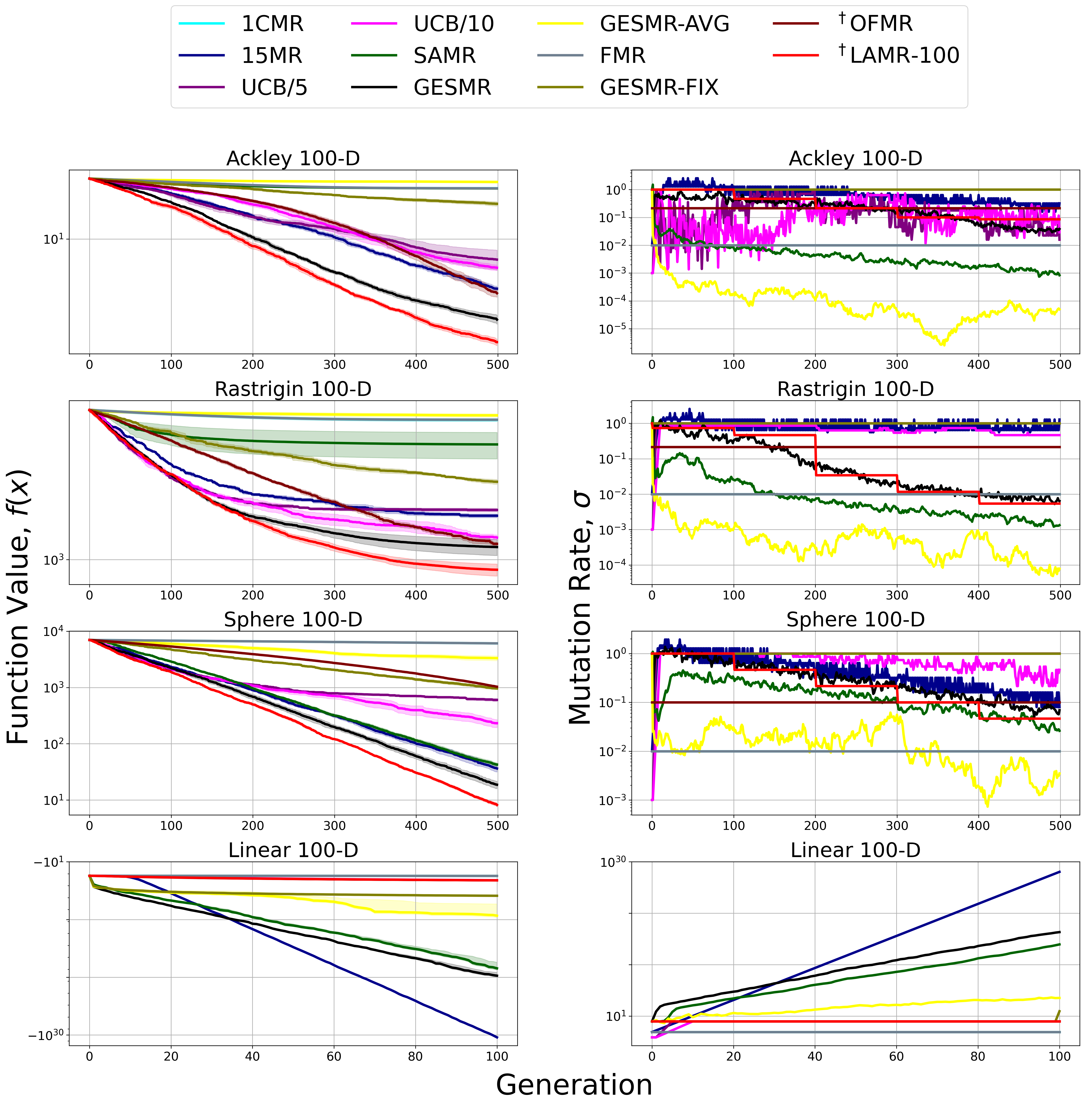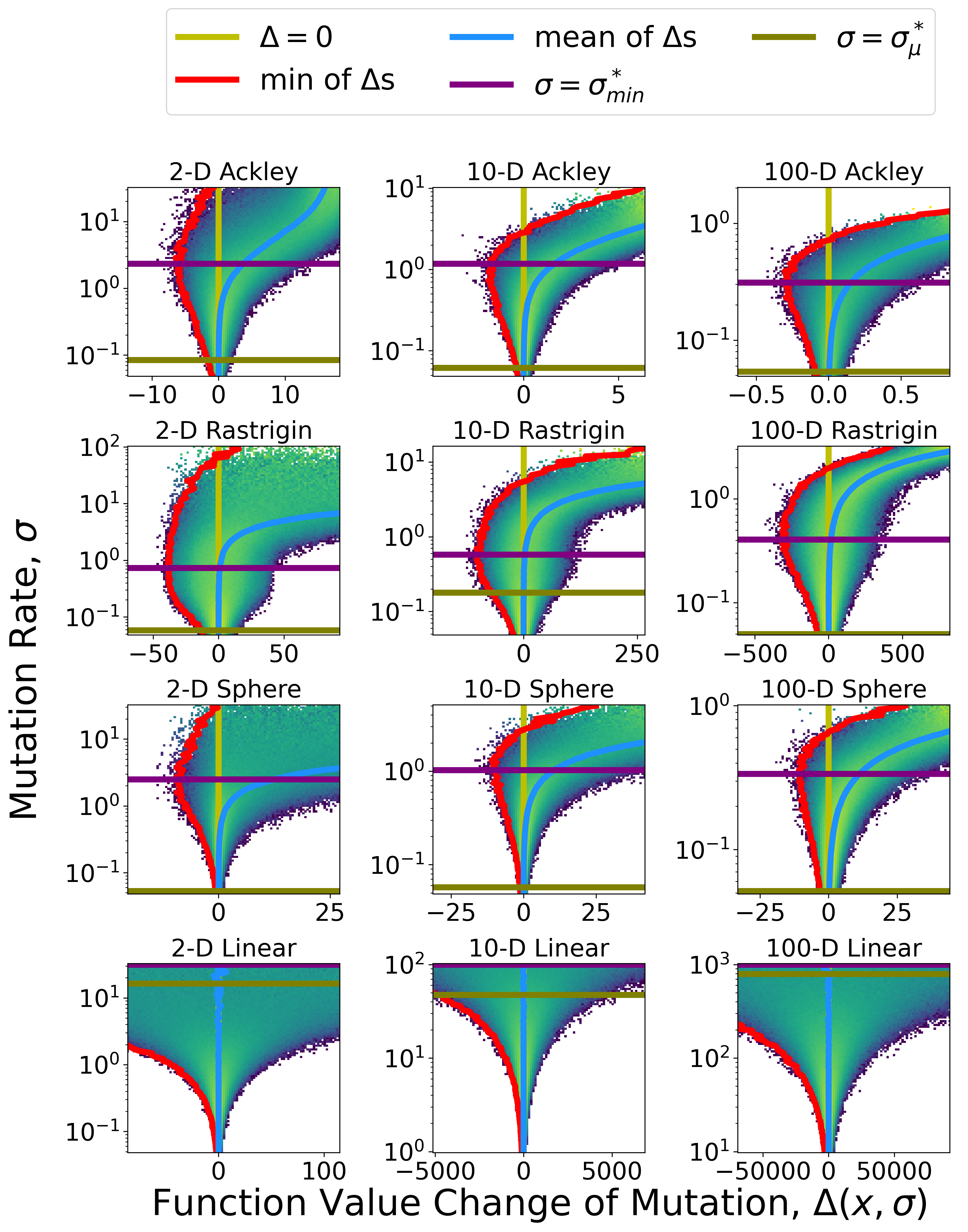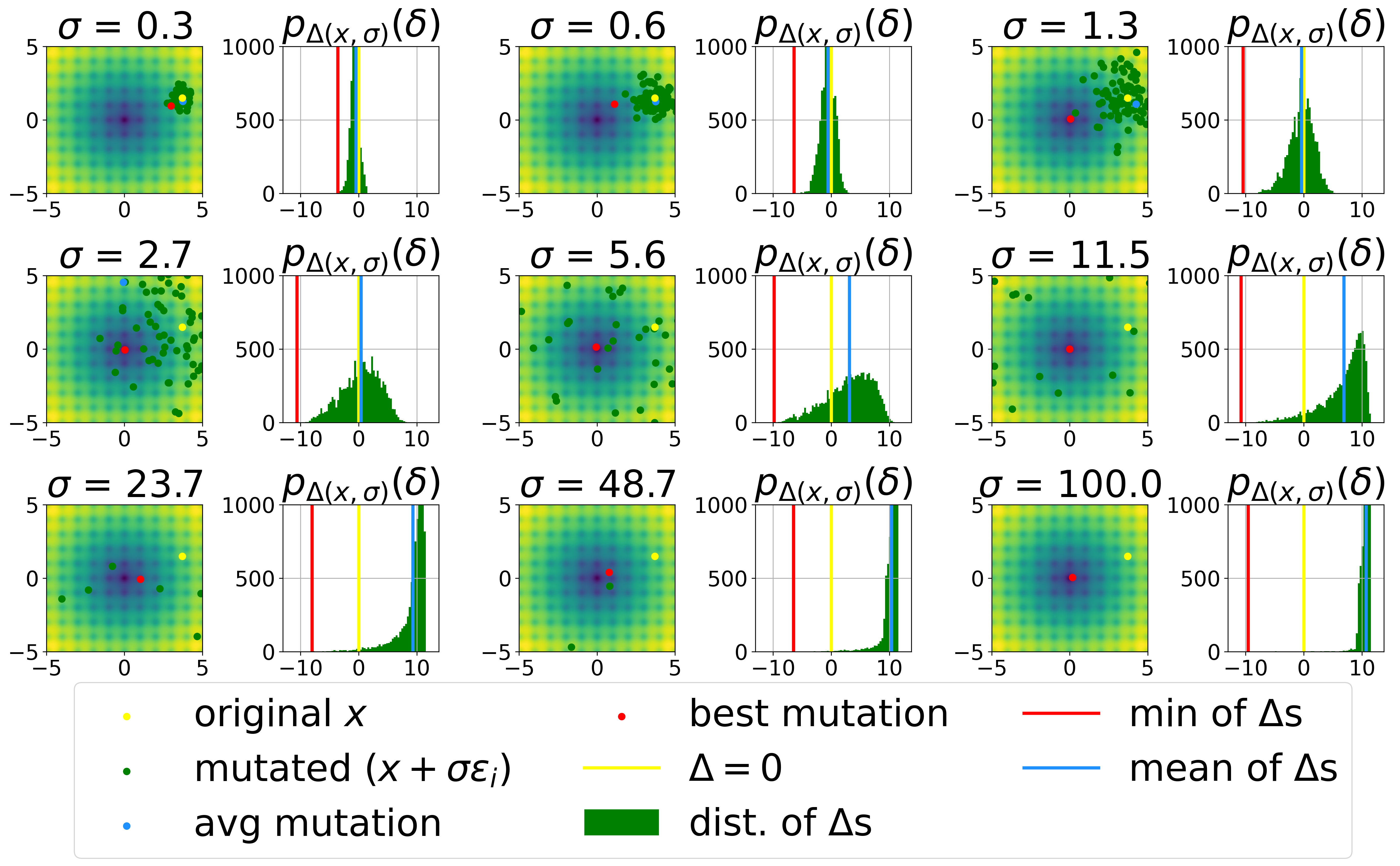- The paper presents the GESMR algorithm which co-evolves solutions and mutation rates based on the best group performance.
- It uses a group elite selection strategy to address vanishing mutation rates, resulting in faster convergence on complex test functions.
- Experimental results show that GESMR outperforms fixed and self-adaptive mutation rate methods, especially in high-dimensional scenarios.
Effective Mutation Rate Adaptation through Group Elite Selection
Introduction
The paper "Effective Mutation Rate Adaptation through Group Elite Selection" presents the Group Elite Selection of Mutation Rates (GESMR) algorithm, which addresses the challenges of dynamically adapting mutation rates (MR) in genetic algorithms (GA). The adaptation of MRs is crucial for the success of evolutionary algorithms (EAs), yet it faces challenges such as the vanishing mutation rate problem. GESMR proposes a group selection mechanism to co-evolve solutions and mutation rates, thereby effectively sidestepping the pitfalls associated with self-adaptive mutation rate strategies.
Methodology
GESMR co-evolves candidates and mutation rates in distinct subgroups. Each MR is assigned to a group of solutions, and the MRs are evolved towards those which yield the most significant improvement in the group. This approach monitors the statistical outliers for fitness gain, as opposed to mean improvements, aligning more closely with the algorithm's long-term objective of exploration and robust adaptation.

Figure 1: Comparison of GESMR against a fixed MR GA and SAMR. GESMR co-evolves solutions and MRs separately, using the best gain from the MR's assigned group.
The GESMR steps are as follows:
- Group Assignment: Distribute the population of solutions among a specified number of MR groups.
- Selection and Mutation: Use the best function value improvements to select MR that supports the greatest enhancement in each group.
- Mutation Rate Evolution: Evolve each MR towards values that have proven effective, optimizing the group elite approach's doctrine of promoting the best mutation rates.
The novelty in GESMR’s approach lies in its focus on the best change in function value rather than the average, providing a more resilient methodology against the tendency for mutation rates to diminish to zero.
Experimental Results
The performance of GESMR is benchmarked against several test functions and existing methods such as optimal fixed MR, LAMR, and SAMR. Experiments demonstrate GESMR’s superior ability to converge quickly to better solutions and match its MRs to long-term optimal MRs found by foresight methods like LAMR-100.

Figure 2: Elite function value and average mutation rate (MR) over generations of evolution, showing GESMR's superior performance in function value.
The experiments also highlight:
Theoretical Insights
GESMR’s effectiveness is theoretically grounded in addressing the failures of self-adaptive MRs through statistical outlier handling. Unlike SAMR, which focuses on mean changes, GESMR's mechanism adapts towards more effective group mutations, thus avoiding convergence to suboptimal rates.

Figure 4: A representation of σ versus Δ(x,σ) with empirical distributions and highlights of GESMR's avoidance of zero convergence.
Adaptive and Practical Implications
The practicality of GESMR is affirmed as it does not require additional computational overhead compared to traditional GA approaches. This efficiency ensures its applicability in broader real-world tasks such as high-dimensional neuroevolution for image classification in MNIST and Fashion-MNIST and control applications in reinforcement learning scenarios like CartPole and MountainCar.
Conclusion
Overall, the innovative GESMR algorithm effectively mitigates the vanishing mutation rate problem and accelerates convergence in genetic algorithms by utilizing group elite statistics. Its success across various experiments and theoretical backing provide a compelling case for its adoption in both continuous testing and real-world applications in evolutionary computation. The methodology not only facilitates dynamic mutation control but also preserves a high degree of adaptability to evolving problem landscapes.

Figure 5: Elite function value and average mutation rate evaluation against standard and competitive methods on neural and reinforcement learning tasks, showcasing GESMR's adaptability.






